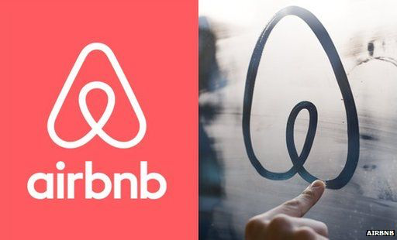
Introduction
With the advent of technology and the world becoming a village, the advancement has led to the smooth transitioning of digital interactions into physical ones. Leveraging the power of the internet, organizations have grown at a phenomenal scale and size in the past two decades. Once a domain of emails, books, and music, the internet has transformed into billion-dollar platform economies. These new technologies are “fuelled by data, automated and organized through algorithms and interfaces, formalized through ownership relations driven by business models, and governed through user agreements” (Van Dijck, Poell, and De Waal 2018, as cited in Van Dijck, J., Poell, T. & de Waal, M., 2018, p.983). Platform businesses, simply put, are platforms for bringing together service providers and consumers with the aim of generating value for both by reducing transaction costs. One such industry is peer-to-peer accommodation; these networks have existed for a long time but have never caught the imagination as Airbnb has. More than a revolutionary business, it is a model that has defined the novelty of a stay in a new way. Virtually doing business takes on a new definition with the case study of Airbnb; this multi-billion-dollar platform business in which the ‘air’ in the air mattress attributed to the success has transformed the tourism industries across the globe but has also changed the definition of a hotel stay. This case study will cover the success factors, strategy for monetizing the business and highlight a few concern areas.
Business Commencement, Field Operation, and its Success
What started in 2007 as a medium to avoid eviction and pay rent by the two friends, Joe Gebbia and Brian Chesky, by renting out an air mattress in the living room for the conference participants in San Francisco, has now catapulted to a multi-billion-dollar company. The initial website developed for short-term rental is no longer about the goal of exceeding the initial economic benefit offered to the guest, but now to an experience and the uniqueness of staying in an Airbnb. Today it has grown with over 5.6 million listings in 220 countries, with over 2 million people staying each night at an Airbnb-booked accommodation worldwide (Airbnb, 2021). The company debuted on Nasdaq pricing its $3.5 billion IPO in December 2020 by pricing its share at $68. (Money Control, 2020).

2014. https://blog.adioma.com/how-airbnb-started-infographic/.
The business depends on the success of economies of multisided markets and the value generated by its three stakeholders, i.e., the guests, hosts, and third parties (Mansell, Robin, and Steinmueller, W. Edward, 2020, p.38). Therefore, Airbnb ensures that there are active engagements -tailormade and customized to each of these stakeholders allowing them to perceive value. The uniqueness of the platform business has enabled Airbnb to generate value without employing any providers or owing the accommodations listed on their platform.
Clearly understanding that there is little to no direct influence on the hosts to pressurize for using the platform, Airbnb has developed the ‘platform culture’ and actively nurtured the relationship. To build significant loyalty from the hosts, the co-founders regularly visit and stay at the host’s homes, thereby tangibly reflecting their direct involvement and dedication to growing the business jointly (Sundararajan, 2014). Events such as #AirbnbOpen (Sundararajan, 2014) are frequently organized with well-intended programs of disseminating best practices, building their community with well-organized thoughtful gifts and food drives to build the relationship; almost a partnership with their hosts, thus creating an Airbnb shared culture, shared norms, shared values, and capabilities. The business model employed by Airbnb is almost like a digital franchise with its own dedicated services lines; one such for the host is the ‘dedicated Trust and Safety team on-call 24 hours a day (Sundararajan, 2014). The branding strategy employed by Airbnb “Belong Anywhere” emphasizes community and connectedness.

For the host, one of the leading value propositions is mitigating their risk with the peer-to-peer-detailed resume on the guests, allowing them to see the previous host’s reviews. For the guests, the value proposition is the variation provided over standardized hotel rooms. At Airbnb, uniqueness, and imperfection in the style of accommodation is celebrated, unlike the standardized design hotel room, where the guests have options to choose and plan their stay, be it a yurt, treehouse, floating house, or an island (Dolnicar, 2017)
How Airbnb makes money
What is unique about Airbnb is that it has managed to create and capture a market segment not existing before and at the same time disrupted the established market segment of the hotel industry (Sigala, M. and Dolnicar, S.,2017). Doing so has helped people monetize their homes and, in turn, made Airbnb profitable. (Spring, 2021)
“We used to live in a world where there were people, private citizens, a world
where there are businesses, and now we’re living in a world where people can
become businesses in 60 seconds.”
Brian Chesky, CEO of Airbnb in an event in Colorado in 2014
Most of Airbnb’s revenue comes from service fees from bookings charged to both guests and hosts. These charges are dependent on a host of factors such as length of stay, location, and the type of service. The guests are charged a fee ranging from 5% to 15% of the transaction value, and the full booking fee is charged upfront at the time of booking. The hosts are paid one day after the guest check-in, and a commission fee ranging from 3% to 5% is levied.

The time gap between the booking and the total paid-up amount to the actual stay provides a period of interest-free loan that helps the cash flow management. After the guest check-in, the money minus the commission is transferred if the hosts raise no red flags. The hosts are happy paying the service fee as Airbnb provides 1 million US dollars protection against property damage to the host, which the other peer-to-peer accommodation business does not offer. For the guests, 24/7 support and a guest refund policy provide comfort and security if there are any issues during the trip.
Concerns raised about Airbnb
While it has been mainly a success story, there are serious concerns raised on Airbnb by local communities, city councils, regulatory authorities, and by guests and host themselves. Of the three main concerns raised on Airbnb, one is the social media backlash after the unveiling of Airbnb’s new brand logo in 2014. Social media criticized the Airbnb logo for being stolen from other tech company Automation Anywhere, due to the uncanny resemblance.


Others likened the Airbnb logo ‘Belo’ to look like various body parts and created vulgar drawings and images.

The second primary concern raised is the guest’s safety, as seen from the multiple complaints about the various scams, discrimination, and unsafe conditions witnessed by the reviews provided by the guests. The complaints ranging from multiple listings of the exact property to refund issues to discriminatory cancellations have led to questioning the safety and the sanitary conditions of such accommodations. Below are such two examples from Twitter


The PR team of Airbnb is therefore continuously trying to make these nightmares disappear. Lastly the lack of regulations for governing right from listing and functioning of Airbnb has led to a damaging effect on few of the local communities and have negatively impacted the housing and rental markets. Some cities and few countries are fighting back; in Portland, USA, one cannot put up an Airbnb listing right away. The government has a waiting period, and during that, the property is inspected to ensure the safety guidelines are followed. Japan has gone a step further and has introduced strict regulations enforcing laws requiring the host to provide a record of all the guests and disallowing Airbnb’s to rent out during the weekdays, thus ensuring safety to school kids who walk to school.
Conclusion
Airbnb is here to stay, and it has showed itself as a natural monopoly (Mansell, Robin, and Steinmueller, W. Edward, 2020, p.41). There is no doubt that the contribution of Airbnb to the economy has been immense. The company not only established itself as the leading peer-to-peer accommodation network globally but has also narrowed the infrastructure gap existing, thereby providing an entrepreneurship opportunity to ordinary people. Supplementing one’s income on existing resources has created new employment opportunities leading to the economy’s overall growth.
References
About Us. Airbnb Newsroom. (2021, September 30). Retrieved October 17, 2021, from https://news.airbnb.com/about-us/.
Airbnb: Banking on the Sense of Community by Vaibhavi Chabra is licensed under a Creative Commons Attribution-NonCommercial-NoDerivatives 4.0 International License.
Dolnicar, S. (2017) Chapter 1 – Unique Features of Peer-to-Peer Accommodation Networks, in S. Dolnicar, Peer-to-Peer Accommodation Networks: Pushing the boundaries, Oxford: Goodfellow Publishers, pp. 1–14, https://dx.doi. org/10.23912/9781911396512-3599
Mansell, Robin, and Steinmueller, W. Edward (2020), Advanced Introduction to Platform Economics. Cheltenham, Edward Elgar, pp. 35-54.
MoneyControl. (2020). Airbnb valuation surges past $100 billion in biggest US IPO of 2020. Moneycontrol. Retrieved October 17, 2021, from https://www.moneycontrol.com/news/world/airbnb-valuation-surges-past-100-billion-in-biggest-us-ipo-of-2020-6214821.html.
Reinhold, S. and Dolnicar, S. (2017) Chapter 4 – How Airbnb Creates Value, in S. Dolnicar, Peer-to-Peer Accommodation Networks: Pushing the boundaries, Oxford: Goodfellow Publishers, pp. 39–53, https://dx.doi.org/10.23912/9781911396512–3602
Sigala, M. and Dolnicar, S. (2017) Chapter 7 – Entrepreneurship Opportunities, in S. Dolnicar, Peer-to-Peer Accommodation Networks: Pushing the boundaries, Oxford: Goodfellow Publishers, pp. 77–86, https://dx.doi.org/10.23912/9781911396512–3605
Sundararajan, A. (2014, November 27). What airbnb gets about culture that uber doesn’t. Harvard Business Review. Retrieved October 17, 2021, from https://hbr.org/2014/11/what-airbnb-gets-about-culture-that-uber-doesnt.
Van Dijck, J., Poell, T. & de Waal, M. (2018) The Platform Society. Oxford: Oxford University Press, pp. 5-32 (‘The Platform Society as a Contested Concept’).

